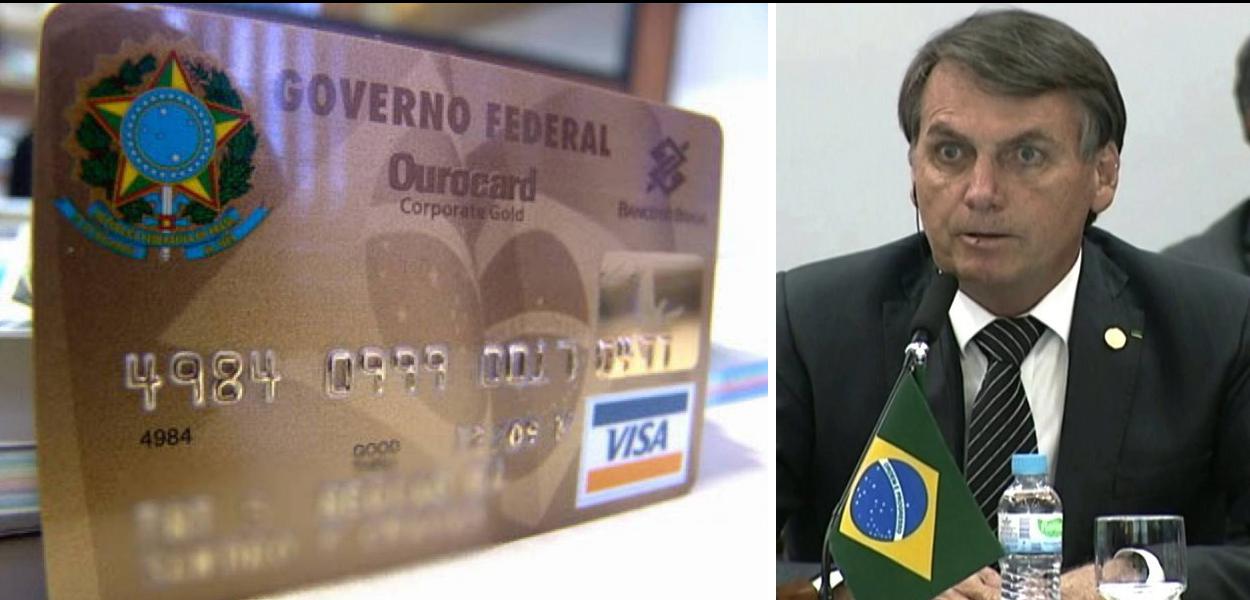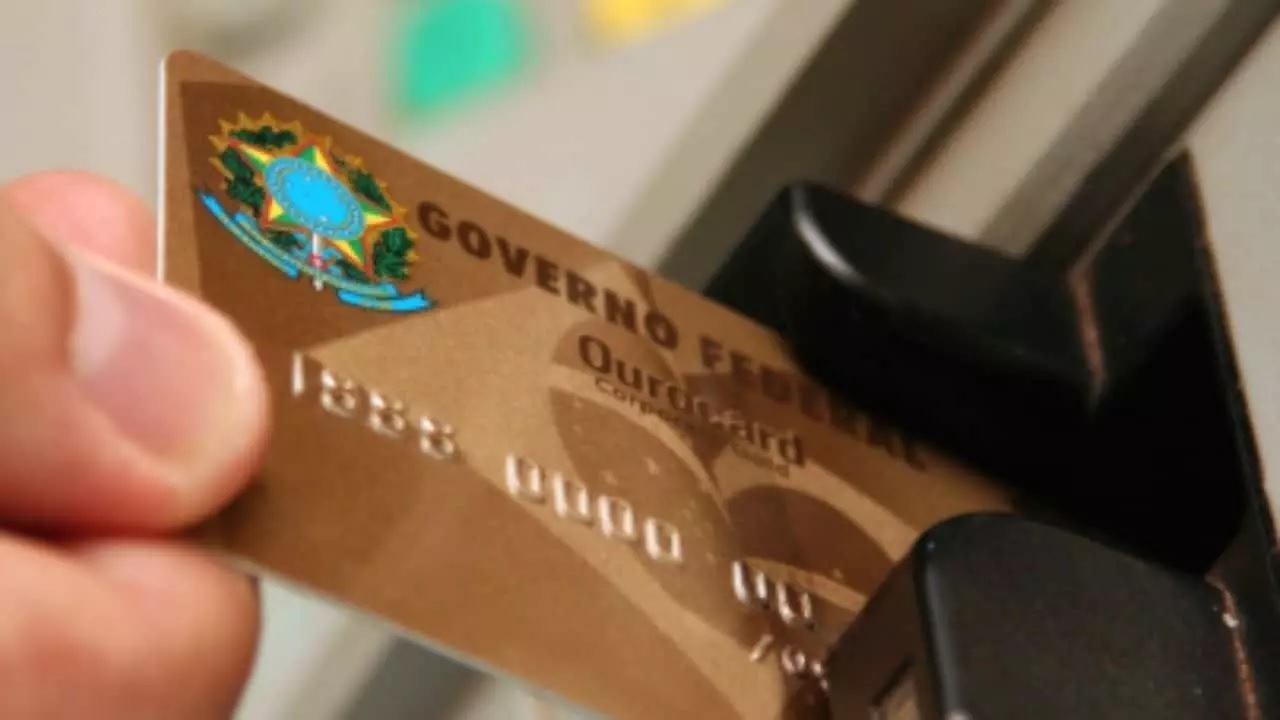RIO DE JANEIRO, BRAZIL – In the current administration, an average of R$709,600 (US$141,920) has been spent per month, which represents a 60 percent increase compared to the Temer government and a three percent increase compared to Dilma’s administration.

Rousseff had an average spending of R$686,500 per month, while Temer spent R$441,300. The data are from the federal government’s Transparency Portal, which collects information from 2013 to March 2020 (most recent invoices). The figures have been corrected for the period’s inflation.
Dilma, Temer, and Bolsonaro’s rules for using the cards were identical. There has been no change in the criteria since 2008, according to the Planalto Palace. That year, then-President Luiz Inácio Lula da Silva imposed restrictions, such as limiting withdrawals, in the face of abusive purchases made using this facility.
Before taking office, the Bolsonaro team even considered ending these cards, which triggered a political scandal with ex-president Lula’s assistants. However, the corporate cards are still in place.
These means of payment were introduced in 2001 under the Fernando Henrique Cardoso administration. They are handed out to people in key public management positions and cover emergency expenses for the purchase of products and services or travel expenses.
In the Bolsonaro administration, expenses related to the President’s office and to employees of the Planalto Palace increased as of October last year.
The peak was R$1.9 million in a single month. The amount was disbursed in February 2020 and recorded in the system in March, although the purpose of the expense, which is virtually entirely confidential, was not disclosed.
This was the largest monthly expense ever recorded on the Transparency Portal. The former record was for Dilma, in October (recorded in November) 2014, when she spent R$1.6 million, in amounts updated by the period’s inflation.
In February this year, the President’s official agenda included trips from Bolsonaro to São Paulo, Rio de Janeiro, and Pará. During the Carnaval holiday, he traveled to Guarujá, a city on the São Paulo coast.
According to the Planalto Palace, expenses related to the trip in February, to rescue the 34 Brazilians in Wuhan, China, where the first cases of the coronavirus were recorded, were also recorded in March.
As the list of expenses is not disclosed, it is impossible to determine the burden of each activity in the monthly accounts.
Comparisons are based on invoices from the CPGF (Federal Government Payment Card) of the Secretariat of Administration of the Presidency of the Republic, which handles the expenses of Bolsonaro, his family, and close staff, the Chief of Staff of the Presidency, for instance.
The Planalto Palace’s corporate cards are used to purchase materials, services, and official vehicles’ fuel, among other expenses. They also finance the President’s security operation in trips (there have been 13 international ones so far), in addition to the maintenance and holding of events at his official residence, the Alvorada Palace.
The total expenses on the President’s card are disclosed, but there is confidentiality regarding the majority of spending, such as the President’s meals and travel. The argument is that this is sensitive information about the President’s routine and that exposure could endanger the Chief Executive.
The Vice Presidency has its own cards, the costs of which are separate. According to the government, the invoices of the Secretariat of Administration of the Presidency only include the expenses of the vice-president when he exercises the President’s duties, for instance, if Bolsonaro is on an international trip.
In his speech after Sérgio Moro left the Ministry of Justice two weeks ago, Bolsonaro mentioned efforts he claims he took to avoid excessive spending of public money and to “set an example”.
“In my life as President, I have three corporate cards, two are used for expenses, as varied as possible. After all, more than a hundred people are in my security (team) every day. Home expenses, ordinary things,” he said.

The President said he has not yet used the third corporate card to which he is entitled, and stated that he has changed the menu at his official residence. But those expenses are confidential. He also said he turned off the heater at the Alvorada Palace swimming pool to reduce expenses. He did not mention that the pool uses solar, not electric, heat.
In August last year, Bolsonaro pledged to show the press his personal corporate card statement, but so far he has not done so.
“I will disclose my card. For you to know how much I spent from January to the end of July. Okay, press? Let’s write a nice article,” he said at the time.
In the government transition, the current Minister of Citizenship, Onyx Lorenzoni, even advocated the end of corporate cards, but the proposal did not enjoy the support of the whole presidential team and the benefit was maintained.
In November, the Federal Supreme Court (STF) overturned excerpts of a 1967 Decree, to ensure transparency to the Planalto Palace’s spending, including on corporate cards.
However, the “black box” was not opened. The Planalto Palace says data that endangers the President and his family cannot be disclosed, based on a 2011 law.
For the NGO Transparency International, the rules “make it clear that confidentiality can be tolerated only when it involves truly sensitive data for national security, which is certainly not the case with all corporate card spending”.
The Planalto Palace’s stance is also criticized by Article19, an international NGO that advocates the right to freedom of expression and access to information.
“Lack of transparency may lead to growing misinformation, a growing lack of credibility in public power, which obviously leads to a lack of circulation of information and has an impact on the population’s ability to oversee state representatives,” evaluates Article19.
In the statement issued after Moro’s resignation, the President said the third corporate card to which he is entitled allows him to withdraw R$24,000 per month. However, he said so far he has not made use of the money. This information cannot be confirmed as the statements have not yet been released, despite the pledge.
In 2008, a scandal involving the use of corporate cards during Lula’s administration was disclosed. They were used in 2007 to pay for expenses in musical instrument stores, veterinarians, opticians, bars, jewelry stores, and in free shops.
The attrition resulting from the denunciation of irregularities brought down the then Minister of the Special Secretariat for the Promotion of Racial Equality, Matilde Ribeiro. In 2007, her expenses totaled R$171,000, of which R$110,000 was for car rentals and more than R$5,000 in restaurants.
The General Secretariat of the Presidency of the Republic stated that the expenses related to corporate cards are due, among other costs, to the “maintenance service” and “events in the presidential residence”.
The portfolio emphasized that the President’s family members are more numerous than his predecessors, which “leads to increased expenses for activities, particularly institutional security”.
Regarding the President’s trips, the government says they are all backed by the security team, which includes lodging, food, tolls, and fuel. In international travel, airport expenses are also paid.
The portfolio emphasizes that the months with higher spending figures coincide with the payment of expenses for a greater number of trips, both national and international. In October, for instance, Bolsonaro toured both Asia and the Middle East.
Source: Folha de S.Paulo

